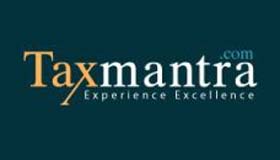Expenses incurred before business startup

Is open for business expense deductible? What are the expenses to start a business? How much can you deduct for start up expenses?

Startup costs are the expenses incurred during the process of creating a new business. Pre-opening startup costs include a business plan, research expenses, borrowing costs, and expenses for. They would need to be for the purposes of your company trade and incurred no longer than years prior to the claim. Start up expenses can be included as pre-trading expenses if they would be allowed after you started to trade.
They are included as at your commencement of trade date. Every fledgling business has startup costs unique to the business, but there are general costs all businesses. Therefore any expenses incurred wholly and exclusively in the course of setting up the business for which the company was later formed can be reclaimed. Pre-trade expenses are those that you pay out before you start trading.

A customer may incur expenses for the purposes of a rental business before that business starts. If so, they may be able to claim a deduction for. The first category of expenses are those items you bought specifically for the business. You can deduct up to $0of these expenses in the year your business begins.
Yes, expenses incurred pre- start up can be claimed against tax. Expenses incurred prior to a business being open for business are not expenses. Business expenses incurred during the startup phase are limited to a $0deduction in the first year.
This limit only applies if your costs are $50or less. So if your startup expenses. During the infancy of any start-up business it’s necessary for entrepreneurs to invest in researching the potential need for the business i. Investigatory start-up charges cover analysis of existing comparable products on the market, transportation, labour supply, consultancy fees and expenses whilst doing deals with potential suppliers and distributors. Business start-up costs incurred before the commencement of, or in preparation for carrying on the trade can be substantial.
SARS have provided guidance in a new Interpretation Note on when pre-trade expenditure may be deducted for the purpose of determining taxable income. Do this before you start up your business. Types of Startup Costs. Different types of businesses will have different costs when they are starting up.
We have, therefore attempted to think of all the different classes of start-up expenses you may encounter. Whether they are running costs of the operation or one-off capital costs for purchasing. Start-up expenses are those that individually cost less than $5or will last less than one year.
If your start-up expenses exceed $00 you must depreciate any amounts above $0over years. Once your business is up and running there will be two types of start-up costs that you record on the balance sheet – fixed and variable business costs. Fixed costs relate to outgoings that must be paid regardless of whether the business turns over a profit. The election is irrevocable and applies to expenses incurred before you begin operations. A key issue in any tax decision for a new venture is pinpointing when your trade or business actually begins.
There is a long line of case law which interprets the key phrases. There are some exceptions to the general rule, where there are specific legislative rules. How do I incorporate these expenses ? But this seems too simple! Any expense that would be deductible as an operating expense by an ongoing business is a start-up expense when it’s incurred before a business begins. Where you set up a Limited company and provide it with cash, which it then spends on startup costs, these will be tax deductible as long as they would have been had trading already started.
The rules say this type of expense counts as if the company had incurred them on the first day of trading. Typical costs include investigating whether to open a business , ordering supplies neede and training employees. By Mark Williams, Director of Operations, BizFilings. When starting a business , the initial formation costs are known as Start - Up Expenses.
This would include incorporation costs, attorney fees for agreements, trademarks, market investigation study costs, pre-opening advertising costs, etc.
Comments
Post a Comment